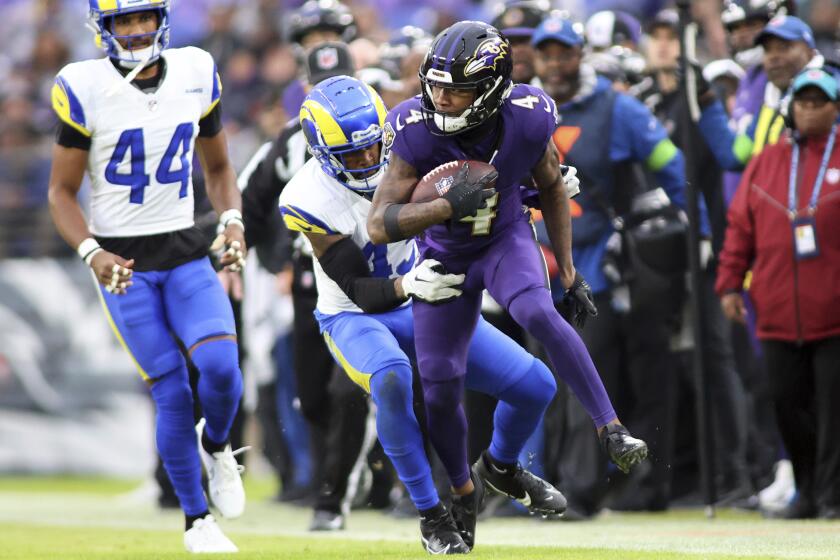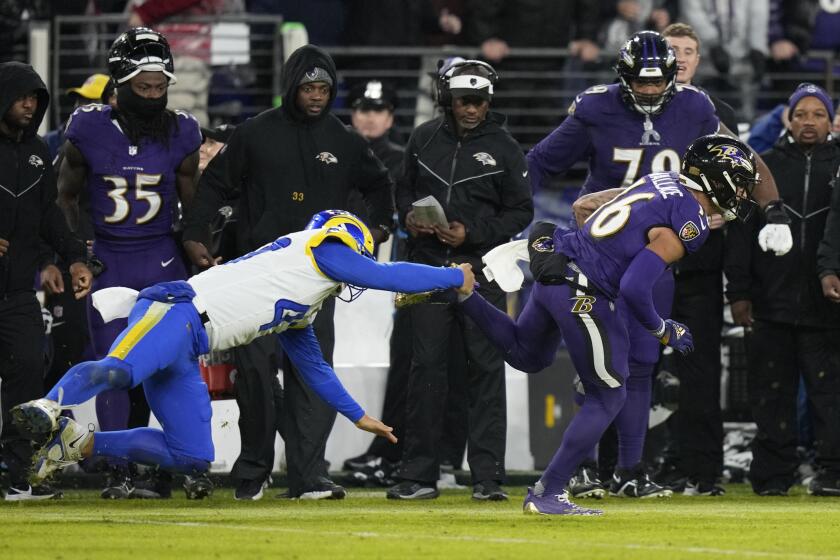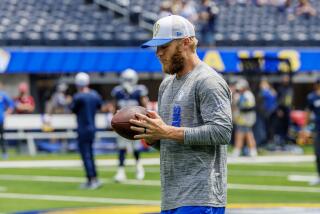Hunter Long’s knee issue, Tutu Atwell’s concussion among Rams’ injuries
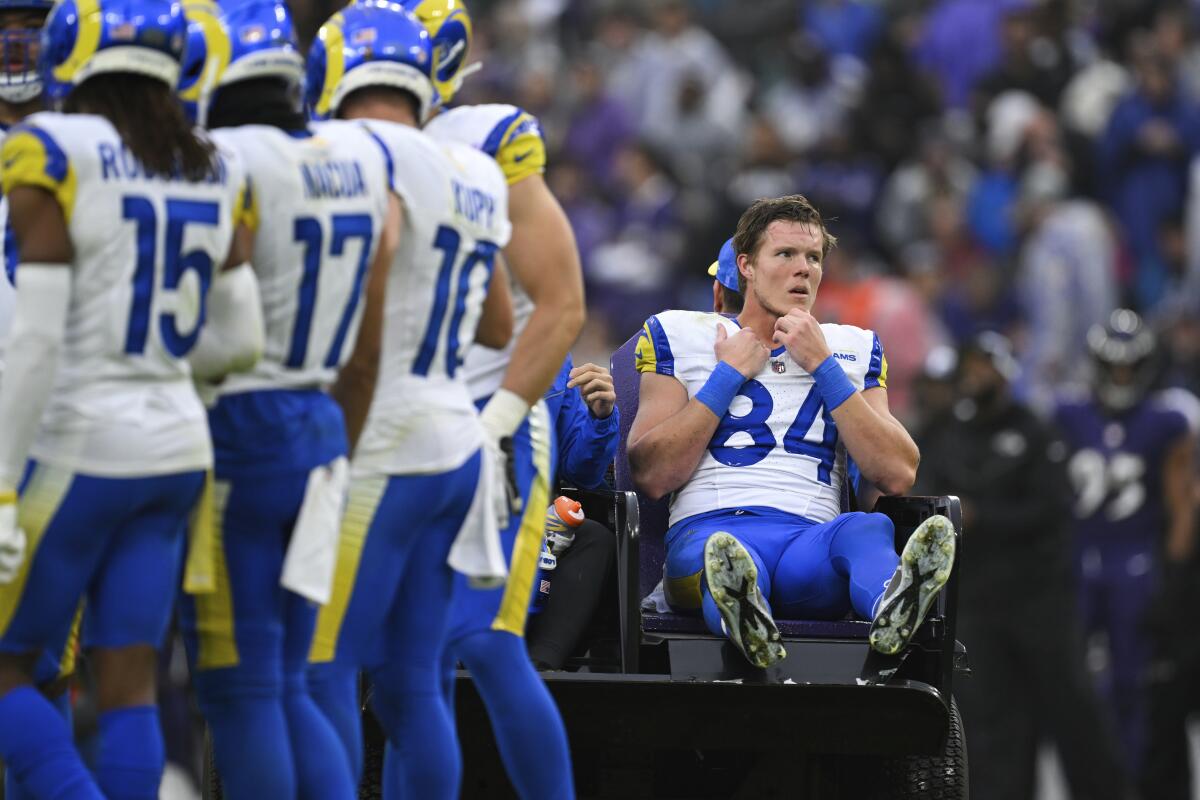
Rams wide receiver Tutu Atwell is in concussion protocol and tight end Hunter Long will undergo season-ending knee injury, coach Sean McVay said Monday.
Atwell and Long were injured during the Rams’ 37-31 overtime defeat to the Ravens on Sunday in Baltimore.
Right tackle Rob Havenstein also suffered a groin injury, and long snapper Alex Ward was being evaluated for a neck injury, McVay said during a video conference.
The Rams (6-7) play the Washington Commanders (4-9) on Sunday at SoFi Stadium.
Veteran receiver Demarcus Robinson is expected to start if Atwell is not cleared to play against the Commanders.
Robinson, who signed a veteran-minimum contract before the season, had three catches for 46 yards and a touchdown against the Ravens. It was the second game in a row he caught a touchdown pass.
The Rams hung tough with AFC powerhouse Baltimore, but big plays, including the deciding punt return in overtime, were their downfall.
Veteran tight end Tyler Higbee sat out against the Ravens because of a neck injury but McVay said he could return against the Commanders. If Higbee is not available, rookie Davis Allen could fill that spot.
Allen caught four passes for 50 yards and a touchdown against the Ravens.
Veteran Joe Noteboom played right tackle after Havenstein was injured and could start against the Commanders if Havenstein is unable to play.
The Rams do not have a backup long snapper on the practice squad.
McVay said the Rams missed six tackles on Taylon Wallace’s 76-yard punt return for a touchdown that ended the game against the Ravens. Despite the breakdown, McVay said he was proud of the way the Rams competed against one of the NFL’s top teams.
But the Rams fell short of capitalizing on chances to close out the game, “really in all three phases.”
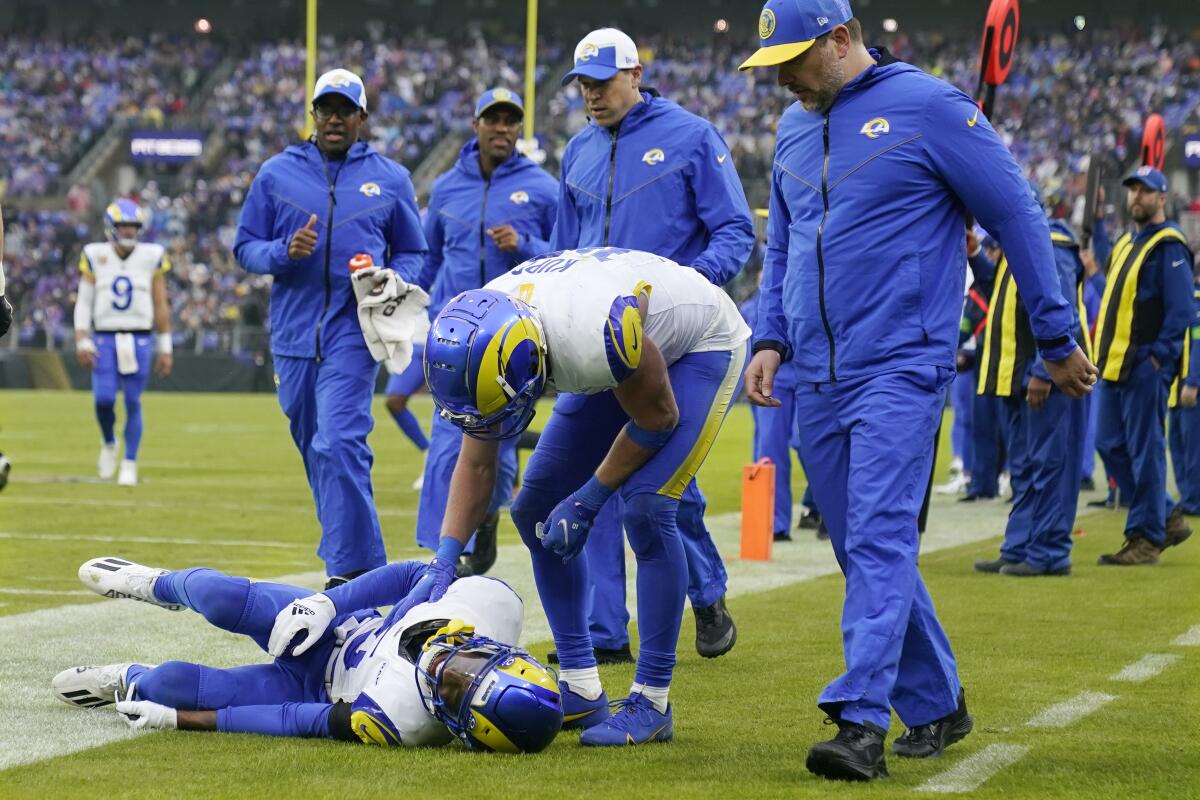
McVay said a costly delay-of-game penalty in overtime resulted from a communication error among linemen.
“We just kind of lost track of time right there,” McVay said. “All those things start with coaching, and I’ve got to do a better job.
“But that was a very surprising one right there for us, but one you learn from and hope to never replicate. It ended up hurting us in that instance.”
The Rams also were forced to use a timeout near the end of regulation because of apparent headset issues that prevented quarterback Matthew Stafford from clearly hearing McVay’s play-call.
“No matter what, whether it’s a headset going out or whether he’s not hearing it, it’s a communication issue,” McVay said. “And that’s one of the things I think we’ve taken some pride in.
Tylan Wallace had never returned an NFL punt until an injury forced him into action, and his 76-yard return for a TD in OT lifted the Ravens over the Rams.
“That was one of the things that I think did hurt us a little bit … not exclusive to offense, but just overall, and that always starts with coaching.”
The Rams started their first possession with nine consecutive running plays that — with the help of a personal-foul penalty against the Ravens — moved the ball to the nine-yard line.
McVay then called three unsuccessful pass plays, and the Rams settled for a field goal.
“Once we got down into the red area and things tighten up a little bit, they added some extra players to the box and changed up some of their personnel groupings,” McVay said, “some of which you like to be able to run it against, sometimes don’t. And it’s always a give and take.
“But there’s always things that I’ll look at in terms of a decision maker.”
More to Read
Go beyond the scoreboard
Get the latest on L.A.'s teams in the daily Sports Report newsletter.
You may occasionally receive promotional content from the Los Angeles Times.

